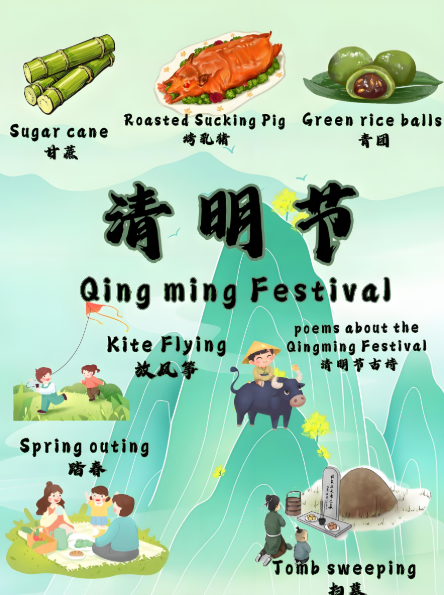Tomb-sweeping Day, also called the Qingming Festival, is a Chinese traditional festival on the 104th day after the winter solstice (or the 15th day from the Spring Equinox), usually occurring around April 5 of the Gregorian calendar.

Origin
Tomb-sweeping Day originated from Hanshi Day (cold food day), a memorial day for Jie Zitui. And it is credited to the Emperor Tang Xuanzong in 732. Then observance of Qingming found a ffrm place in Chinese culture and continued for over 1000 years.
Traditions
The Tomb-sweeping Day is an opportunity for celebrants to remember and honor their ancestors at grave sites. Young and old pray before the ancestors, sweep the tombs and offer food, tea, wine, chopsticks, joss paper accessories.
The Tomb-sweeping Day is a time when the sun shines brightly, the trees and grass become green and nature is again lively. Since ancient times, people have followed the custom of Spring outings.
